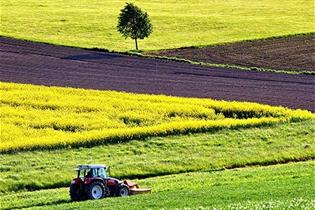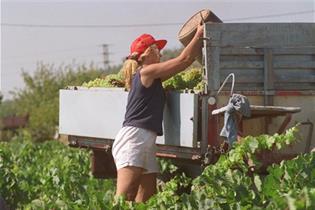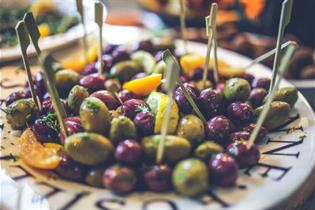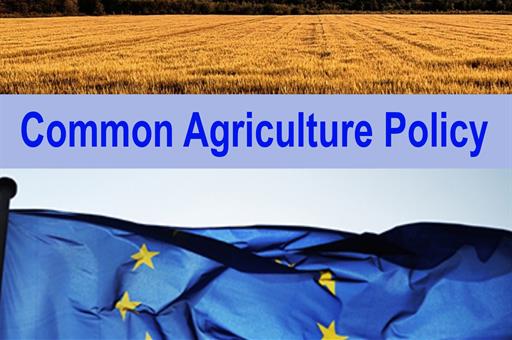Luis Planas expresses his satisfaction at inclusion of Spain's proposals in political agreement on CAP
News - 2020.10.21
This was the assessment made by Luis Planas of the text of the consensus achieved during the Agriculture and Fisheries Council of the EU, which began on Monday, 19 October and ended at close to 5 am on Wednesday morning in Luxemburg. He emphasised that this corresponds to "exactly" what Spain had called for.
After more than two and a half years of negotiations and five Rotating Presidencies, the minister praised the work of the German Presidency in this half year in reaching this consensual position among Member States and which brings together the interests defended by Spain.
The minister stated that the future CAP will be applied as from 1 January 2023. There will be a transition period in 2021 and 2022 during which time crop and livestock farmers will continue to receive subsides under the new budget of 47.27 billion euros, albeit under the rules of the previous CAP.
This CAP - the most pro-environmental of the recent reforms and adapted to the times and demands from citizens - will allocate 40% of its budget to environmental targets, but will also strengthen the role of crop and livestock farmers to ensure their profitability.
In this regard, the minister stressed that the key to this agreement is the balance between the sustainability of crop and livestock farmers through the basic income subsidy, and the new green architecture of the CAP, which will be promoted through the so-called ecosystems - complementary subsidies to comply with environmentally beneficial practices.
Stable income for crop and livestock farmers
 Archivo60% of the direct aid is allocated to basic income subsidies. The minister stressed that we can guarantee stable income for farmers at the planned level, in accordance with the needs analysis drawn up by the Ministry of Agriculture, Fisheries and Food, in collaboration with the regional governments and agricultural and environmental organisations. Furthermore, we ensure certainty for crop and livestock farmers until 2027. These subsidies will form part of the elements of the current green payment, configuring the model of enhanced conditionality, such that crop and livestock farmers will receive the basic income subsidy, complying with strict requirements and good practices on climate and environmental matters.
Archivo60% of the direct aid is allocated to basic income subsidies. The minister stressed that we can guarantee stable income for farmers at the planned level, in accordance with the needs analysis drawn up by the Ministry of Agriculture, Fisheries and Food, in collaboration with the regional governments and agricultural and environmental organisations. Furthermore, we ensure certainty for crop and livestock farmers until 2027. These subsidies will form part of the elements of the current green payment, configuring the model of enhanced conditionality, such that crop and livestock farmers will receive the basic income subsidy, complying with strict requirements and good practices on climate and environmental matters.
20% of the direct aid will be allocated to ecosystems, which will apply in 2023, with the entry into force of the new CAP. In the first two years of this learning curve, those funds that are not used will be allocated to other actions. The necessary flexibility will be offered so that Member States can design their own ecosystem according to needs. This will help achieve the environmental transformation of agriculture to achieve the proposed environmental and climate targets.
This CAP has sufficient funding to respond to the major challenges faced. It is a question of complying with certain targets and with Wednesday's approval, these environmental targets can be met, together with emissions reductions and others that will lead us towards a decarbonised economy in the European Union by 2050, stated the minister. "The primary sector clearly contributes to these achievements, which are in line with the Paris Agreement and the goals of the European Green Deal.
Gender focus of CAP, thanks to Spain
 EFEThe minister highlighted the gender focus contained in the CAP for the first time as one of its specific goals. With this focus, interventions may be included in the Strategic Plan that positively discriminate in favour of women so that they have more opportunities to take on the role as the head of an agricultural holding or a small- or medium-sized agri-food enterprise in the rural environment.
EFEThe minister highlighted the gender focus contained in the CAP for the first time as one of its specific goals. With this focus, interventions may be included in the Strategic Plan that positively discriminate in favour of women so that they have more opportunities to take on the role as the head of an agricultural holding or a small- or medium-sized agri-food enterprise in the rural environment.
"We also aspire to see women playing a more active and visible role in rural communities heading up companies, organisations and cooperatives in their environment", stressed the minister. He remarked that young people will also play a bigger role under this new CAP. At least 2% of funding under the CAP must be allocated to young farm workers, through payment supplements under the first pillar (direct aid) and through subsidies for their first holding, which could amount to as much as 100,000 per young person getting involved for the first time.
Furthermore, the new focus of the CAP based on a Strategic Plan will allow (in the case of Spain through the regional governments) support measures to be designed for young farmers that are better adapted to overcome the barriers that make their incorporation difficult (for example, the allocation of tutors, exchange programmes, training, etc.).
A less bureaucratic CAP
As from 2023, crop and livestock farmers may receive support without having to make a formal application. To do this, intensive use of new technologies will be employed, monitoring crops with the latest satellite image technologies (Sentinel images), which will mean that the data necessary for applications for support can be directly captured substantially reducing physical controls on the ground.
This will be a more simplified CAP, so that farmers waste less time on bureaucracy and can devote more time to running their operations.
Another of Spain's demands was that the redistribution payment should be focused on small- and medium-sized holdings that rely more on agriculture. The minister stated that the new CAP will allow a redistribution payment to be established based on amounts deriving from limitations on payments (capping) to increase the amount received in the first hectares by small- and medium-sized farmers that depend more on agricultural income to maintain their activity.
Support for table olives
 ArchivoFurthermore, as regards payments linked to production (coupled payments) and specific programmes for more sensitive productive sectors, Member States may allocate up to 13% of the amounts from the direct payments to grant payments linked to production for those productive sectors that need to receive support to maintain their activity. "We have managed to expressly include table olives as a sector that is eligible for coupled payments", remarked the minister.
ArchivoFurthermore, as regards payments linked to production (coupled payments) and specific programmes for more sensitive productive sectors, Member States may allocate up to 13% of the amounts from the direct payments to grant payments linked to production for those productive sectors that need to receive support to maintain their activity. "We have managed to expressly include table olives as a sector that is eligible for coupled payments", remarked the minister.
As regards the sector programmes designed to support specific sectors through producer organisations, 3% of the direct payments can be allocated to these sector programmes. Through the ministerial department, "we will propose the creation of a sector programme for the olive sector, in accordance with the proposal contained in the sector roadmap".
Such sector programmes will be maintained as wine, beekeeping and fruit and vegetables, the latter with no budgetary cap, as with school programmes. These programmes are particularly important for Spain, since they represent very important Mediterranean productions in sectors in which we hold leading positions at a European and a global level.
Subsidies for rural development, said Luis Planas, "will allow us to continue financing investments to improve irrigation". Spain is committed to sustainable irrigation, which allows water savings to be made, reduces the use of energy, and enhances the reuse of water. The rural development funds will play a very important role in boosting these investments.
Digital transition, allied to the environmental transformation
The digital transition will necessarily complement the environmental transformation. Innovation subsidies will be maintained through the European Innovation Association and the Agriculture Knowledge and Innovation System (AKIS) will receive a boost. Accordingly, the digital transition will be facilitated so that innovation filters down to everyone, particularly to small- and medium-sized farmers and so that through training they can make the best use of new technologies and access ecosystems and support under the new CAP.
Luis Planas also stressed that, for the wine sector, vineyard authorisations have been extended beyond 2030, specifically to 2040, a demand made by Spain and France. Having reached this general European Union agreement, negotiations will now begin on three fronts - the so-called trialogues - between the European Council, the Commission and the Parliament on the EU regulations for the CAP, which must be concluded by the start of next year.
While the negotiations take place, Member States may continue to define their strategic plans. The minister explained that the new CAP is significantly different to the present one, since Member States can design and apply the CAP according to their specific needs and problems, which will take into account the individual characteristics of our different agriculture models. "This will allow us to have a CAP adapted to our reality, without the rigidity of a single Europe-wide model", stressed the minister.
The preparation of a Strategic Plan for the CAP in Spain will amount to an unprecedented effort between Central Government and the regional governments, to set in motion a package of financed instrument with a budget of more than 50 billion euros when including the contributions from Central Government, the regional governments, the EU Recovery Fund and the National Investment and Reform Plan.
Non official translation





